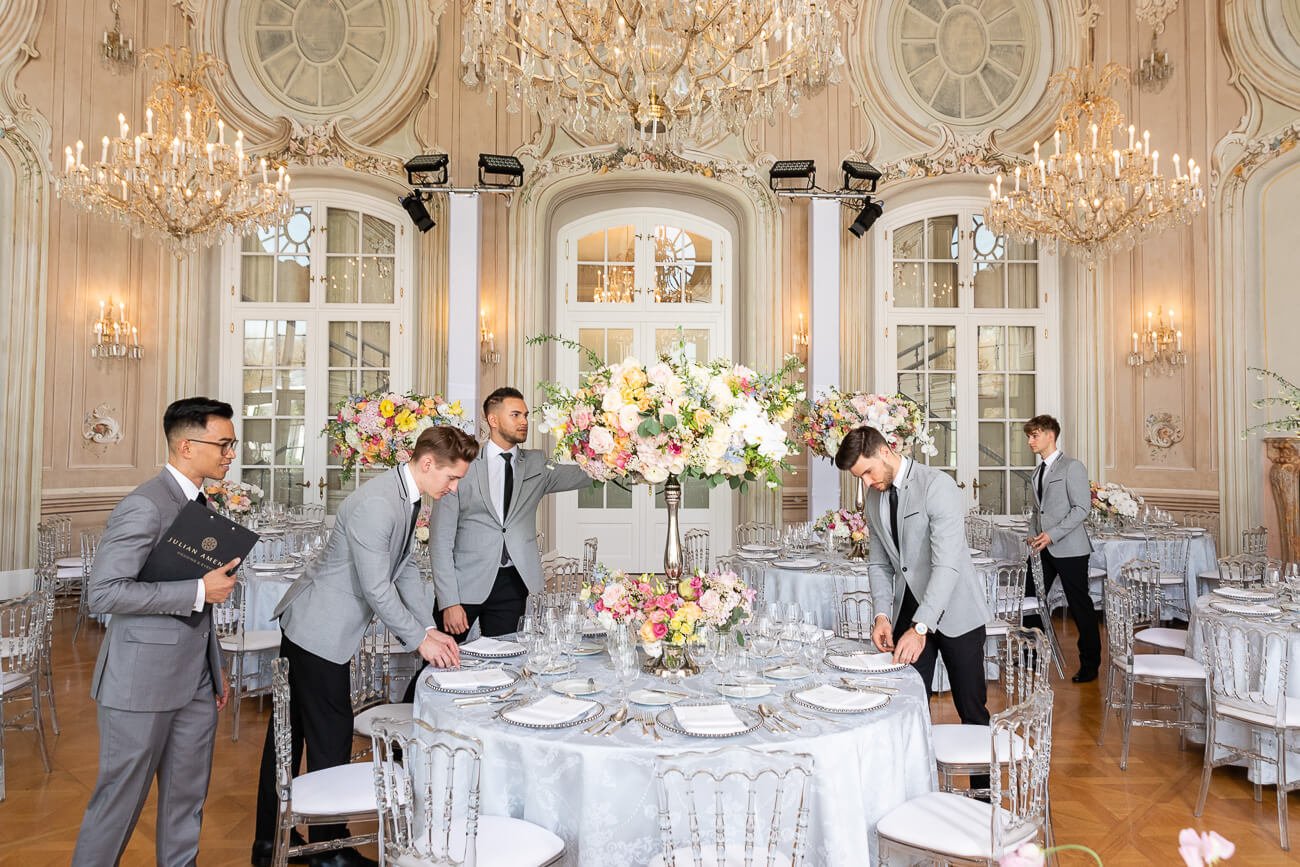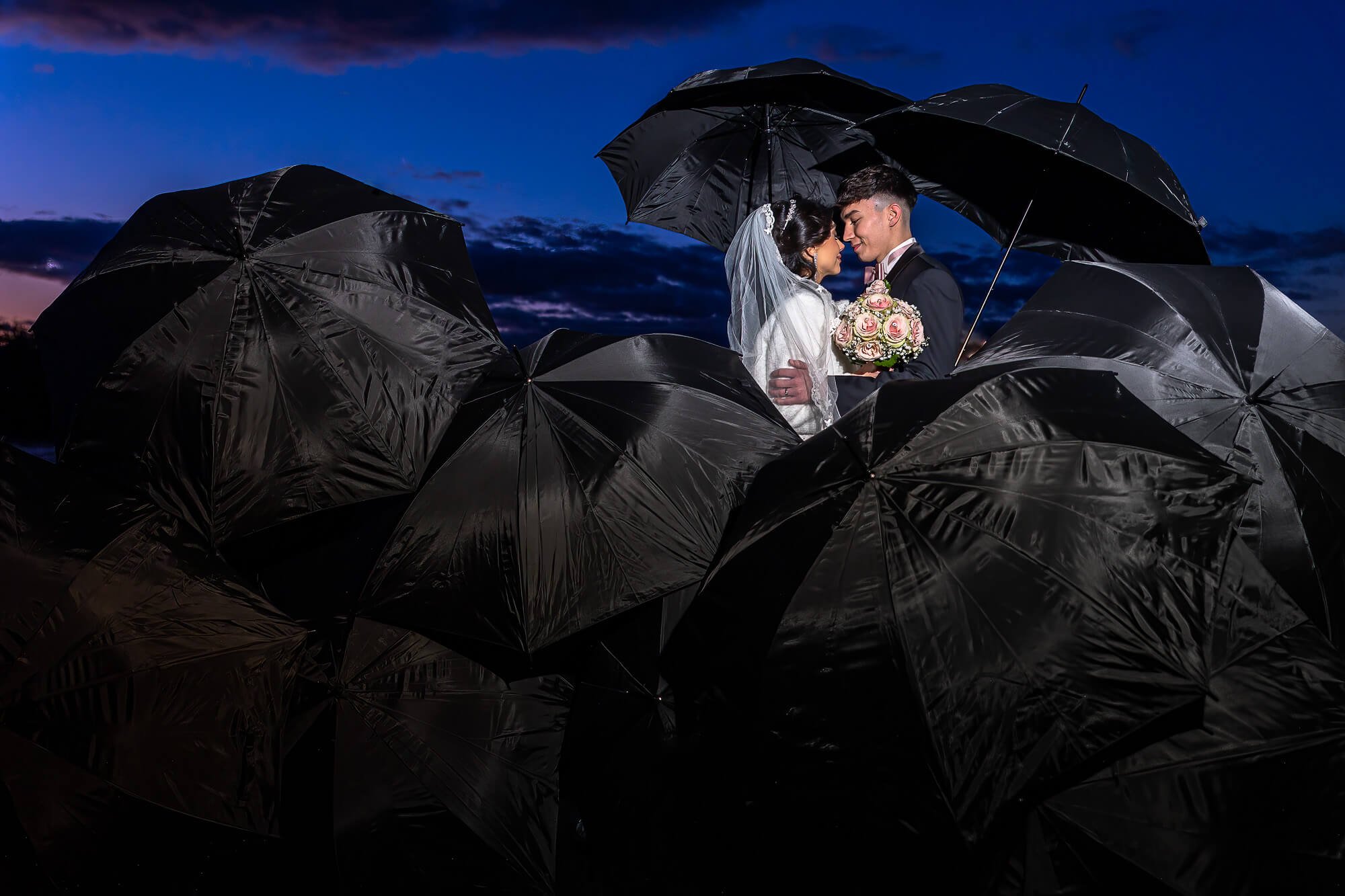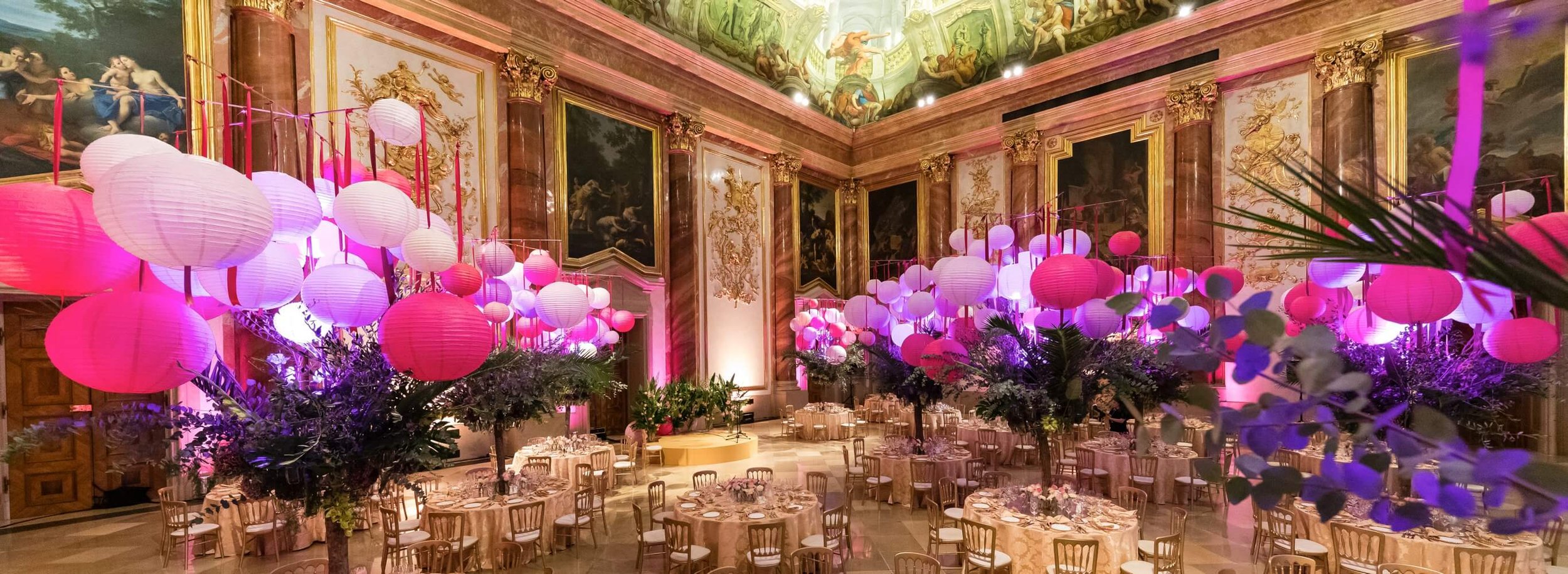Finding a wedding date - 10 valuable tips for choosing the perfect wedding date
As your wedding photographer, it is my pleasure to assist you in preparing for your big day. Choosing the right wedding date is a crucial step in ensuring that your wedding will be an unforgettable event. In this post, I would like to give you ten important tips to consider when choosing your wedding date. From venue availability to personal preferences, this advice will help you find the perfect day for your wedding.
10 tips to focus on when you start planning your wedding:
How soon after getting engaged should we set our wedding date?
Which are the most popular months for weddings?
Which months are less popular for weddings?
Which holidays should be avoided?
Which holidays could be suitable?
Can my wedding date affect the budget?
Close friends, family, and your very own VIPs
Avoid large events and trade fairs
Consider other weddings in your circle of friends
Note the timing of planning and organization
Bonus tip: Dream wedding in the city of Vienna at a special location: How to reserve your date up to a year in advance ℹ️
Are you ready to embark on this exciting journey to choose your perfect wedding date? Then let's get started together and make sure your wedding is an unforgettable experience!
How soon after getting engaged should we set our wedding date?
There is no set rule here. Some couples enjoy celebrating their engagement and like to take a little more time for planning. Others, however, prefer to get started right away. In Austria, Germany, and Switzerland, the average engagement period lasts between 12 and 18 months. If you want to get married within a year, I recommend setting your wedding date about four weeks after the engagement. This will give you enough time to talk to your loved ones about the best date and any prior commitments.
If you decide on a longer engagement period of around 18 months, you can also set your date a little later. However, it is important that there is enough time between sending out the save-the-date cards and the actual wedding date. This gives your guests enough time to plan their vacation days and book any travel arrangements.
Which are the most popular months for weddings?
The most popular months for weddings can vary depending on geographical location, but Saturdays from May to October are usually in high demand. If you are planning an outdoor wedding and want to avoid hot temperatures, I recommend avoiding late July and August. The warm weather, longer days, and opportunity to celebrate outdoors make summer the ideal season for many couples. Most weddings take place during this time, and there is a wide range of venues, service providers, and decoration options tailored to summer.
A summer wedding allows you to create a cheerful and relaxed atmosphere. Whether you opt for a romantic garden wedding, a beach wedding, or a festive outdoor celebration, summer offers countless opportunities to design your big day exactly as you envision it. From vibrant floral arrangements and colorful decorations to refreshing cocktails and uplifting music, there are countless elements that can incorporate summer into your wedding.
Which months are less popular for weddings?
In German-speaking countries, the months from late November to January are generally considered less popular for weddings. But that doesn't mean that weddings during this time are any less magical. On the contrary, a winter wedding can have a very special charm and inspire with a dreamlike atmosphere. The snow-covered landscape, twinkling lights, and cozy atmosphere create a romantic backdrop for an unforgettable celebration. It is a time when bridal couples can snuggle up in warm blankets and share the magic of the season with their loved ones.
Regardless of whether you decide to have a summer or winter wedding, it is important to choose the date that best suits your preferences and plans. Each season has its own charm and offers unique opportunities to make the day an unforgettable experience.
Which holidays should be avoided?
If you are planning a larger guest list that includes distant relatives and friends, I recommend avoiding family-oriented holidays such as Christmas, Thanksgiving, Easter, Pentecost, Assumption Day, All Saints' Day, and New Year's Day. On these days, most people spend time with their families or are on vacation themselves. It is advisable to take these holidays into account to ensure that your guests have the opportunity to attend your wedding and celebrate this special day with you.
In Germany, German Unity Day on October 3 and Labor Day on May 1 are also public holidays, which many people use as days off work. In Austria and Switzerland, similar holidays apply, such as National Day on October 26 and Swiss National Day on August 1. These holidays often involve travel and other activities, which can make it more difficult to get guests to attend your wedding.
In addition to public holidays, you should also take into account the typical vacation periods in Germany, Austria, and Switzerland. In Germany, many people travel during the summer months of July and August, as well as during school holidays, especially Easter and summer breaks. In Austria, the main travel seasons are similar, with the summer months and holiday periods being particularly busy. In Switzerland, the most popular travel times are also the summer months and school holidays, including Christmas and sports breaks.
By taking holidays and typical vacation periods into account in your planning and avoiding them, you can ensure that your wedding date is ideal and that your guests have the opportunity to be there on this special day.
Which holidays could be suitable?
New Year's Eve and the period between Christmas and New Year's Day are popular dates for weddings, and for good reason. These two days offer a special festive atmosphere and allow you to celebrate the beginning of your marriage in a unique way.
In Germany, there are several specific and popular dates for weddings on public holidays. In addition to New Year's Eve, German Unity Day on October 3 and Labor Day on May 1 are also very popular. These holidays offer you the opportunity to combine your wedding with a special social occasion and enjoy a lively celebration.
In Austria, certain holidays are also very popular for weddings. In addition to New Year's Eve, Easter Monday, August 15 (Assumption Day), and October 26 (National Holiday) are popular dates. These holidays offer a wonderful opportunity to combine your wedding with the traditional customs and festivities of these days and provide your guests with an unforgettable experience.
In Switzerland, there are also some popular dates for weddings on public holidays. In addition to New Year's Eve, August 1 (National Day), December 25 (Christmas), and December 26 (Boxing Day) are particularly popular. These holidays allow you to combine your wedding with the cultural and festive traditions of the country and make your big day a real highlight.
Choosing a wedding date on a public holiday gives you the opportunity to imbue your celebration with special meaning and atmosphere. Whether you're celebrating the New Year, national unity, or other social occasions, these dates will create unforgettable memories for you and your guests. Be inspired by the festive mood and plan your wedding on one of these popular dates to celebrate an unforgettable start to your life together.
Can my wedding date affect the budget?
Your wedding date can definitely have an impact on your budget. Many venues and service providers, especially caterers, adjust their prices seasonally. Costs are generally lower during months with lower demand. The same applies to different days of the week. Weddings on weekdays, Fridays, and Sundays are often less expensive than weddings on Saturdays. In addition, holidays such as Mother's Day and Valentine's Day can also affect the availability of service providers and have an impact on the cost of floral arrangements. It is therefore worth choosing your wedding date carefully to best accommodate your budget. Remember to consider trade fairs and major events at your wedding venue or in your city. If the Salzburg Festival is about to start, caterers and hotels will already be fully booked and will charge higher prices or have limited capacity for additional celebrations.
Close friends, family, and your very own VIPs
Each of us has people who absolutely must be at our wedding. Before you set a date, you should make sure that it works for your parents, close friends, and other important people. These special people are important to you and have a significant place in your life. Their participation in your wedding will make the day even more memorable.
That's why it's crucial to consider their availability and preferences before setting a date. By ensuring that the wedding date is convenient for them, you show your appreciation and make sure that they can share in this significant event. Their presence will bring deep joy not only to you as a couple, but also to your guests, filling the atmosphere with love and happiness.
Remember that a wedding is not just a day, but a special moment in life that you want to share with the people who mean the most to you.
Avoid large events and trade fairs
If most of your guests are traveling from out of town, it may be more difficult for them to find accommodation if your wedding takes place on the same weekend as a major event in the city. Keep an eye out for marathons, big concerts, festivals, and soccer games in certain college towns. Although booking a block of hotel rooms for guests can alleviate some of the problems, road closures and traffic can still disrupt your event.
Consider other weddings in your circle of friends
If you know that another wedding with a similar guest list is taking place in the same year as your wedding, for example, that of your siblings or a cousin, make sure there is enough time between the two events—especially if they are taking place in different locations. I would allow at least four to six weeks between the dates, depending on the guest list. If most of the guests are young and travel frequently, they may not mind traveling from one country to another, but I would allow for some buffer time so that the weddings don't feel back-to-back or repetitive in any way. Otherwise, guests may choose one destination over the other.
Note the timing of planning and organization
The ideal planning period for a wedding is usually between 12 and 18 months. This gives you enough time to carefully plan and implement all the details without feeling rushed.
During the first few months of planning, you can focus on the basic aspects, such as choosing the wedding venue, setting the date, and booking important service providers such as photographers, caterers, and florists. These decisions should be made early on, as popular venues and service providers are often booked up well in advance.
As you continue with the planning, you can then focus on the finer details, such as designing the invitations, selecting decorations and flower arrangements, deciding on the menu and organizing a rehearsal dinner, as well as coordinating the music and entertainment for the big day.
A sufficiently long planning period also allows you to compare different offers and options to find the best value for money. It also gives you the opportunity to search for inspiration at your leisure and take your personal preferences and style preferences into account.
However, it is important to note that every wedding planning process is unique and depends on various factors, such as the desired scope of the wedding, the availability of the desired service providers, and the flexibility of the bride and groom. Some couples may also consider a shorter planning period if they already have a clear vision for their wedding or if they are planning a smaller, less elaborate celebration.
Regardless of how long your planning period is, it's important to start early to minimize stress and ensure you have enough time to plan a wedding that matches your dreams and expectations.
Bonus tip: Dream wedding in Vienna at a special location: How to reserve your date
Would you like to celebrate your wedding or civil partnership at a dream wedding location? Then you should first make an appointment by phone or email. The "Dream Wedding in Vienna" department of MA 63 is at your disposal for this purpose:
Presentation "Dream Wedding in Vienna" by MA 63
Phone: +43 1 4000 09570
Email: traumhochzeit@ma63.wien.gv.at
To ensure that your desired date is available, you can inquire in advance by phone or email. Dates for dream weddings are offered at specific times:
Monday, Tuesday, Wednesday, and Friday at 4 p.m. and 6 p.m.
Saturday at 10 a.m., 12 p.m., and 2 p.m.
No dream weddings on public holidays, e.g. Good Friday, Holy Saturday, December 24 and 31, etc.
You're probably wondering how far in advance you can book an appointment. From the first working day in May, you can make reservations for the entire following calendar year. This means that you can book an appointment with the Dream Wedding Department by phone or email more than six months in advance. Please note that it is not possible to make a booking via the online reservation platform of the Vienna registry offices.
Once you have reserved your date, it is time to book your desired wedding venue with the operator.
Conclusion
In this article, I have presented ten essential tips to help you find the ideal wedding date. From considering the season and weather to managing your budget, the significance of special dates, and the availability of service providers—all of these aspects play an important role in setting the right date.
By checking the availability of your dream location early on, taking into account the travel plans of family and friends, and considering alternative dates, you can ensure that all the important people can attend your wedding. It's also important to consider your preferences regarding wedding style and make sure you feel comfortable with different seasons.
It is important to remember to plan and organize the wedding in good time so that you have enough time for all the preparations. An ideal planning period of 12 to 18 months gives you enough leeway to plan all the details carefully and avoid stressful time pressure.
If you are looking for help with planning, there are numerous resources you can turn to. Professional wedding planners can assist you with their expertise and experience, ensuring that you stay on top of everything and complete all the important steps in good time. Friends and family can also be a valuable source of support, whether it's choosing service providers or organizing the details.
Choosing the right wedding date is an important step on the way to your dream wedding. By following these tips and paying attention to your own needs and preferences, you can ensure that you find the perfect date when everything comes together harmoniously. Enjoy the planning phase and look forward to the beginning of an unforgettable chapter in your life!
Let's
Get to know each other!
ARE YOU DREAMING OF A UNIQUE AND PERSONALIZED WEDDING?
Contact me for a free, no-obligation introductory meeting. We will discuss your ideas and wishes, get to know each other, and I will present my work to you in detail.
Discover your dream wedding – get a no-obligation consultation now!






